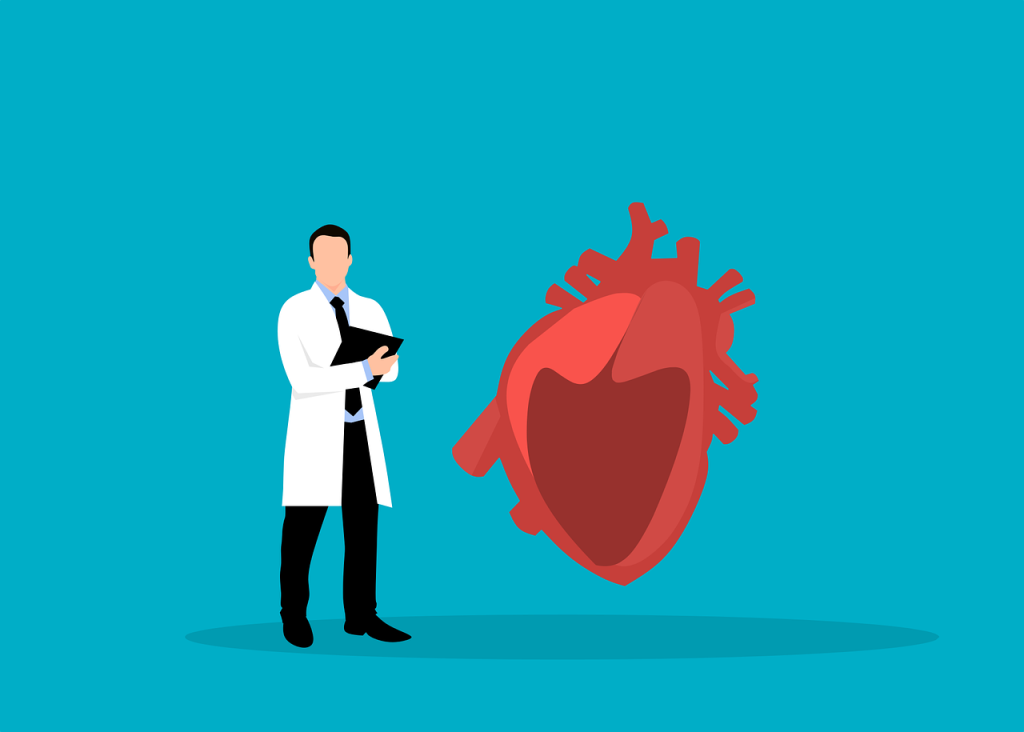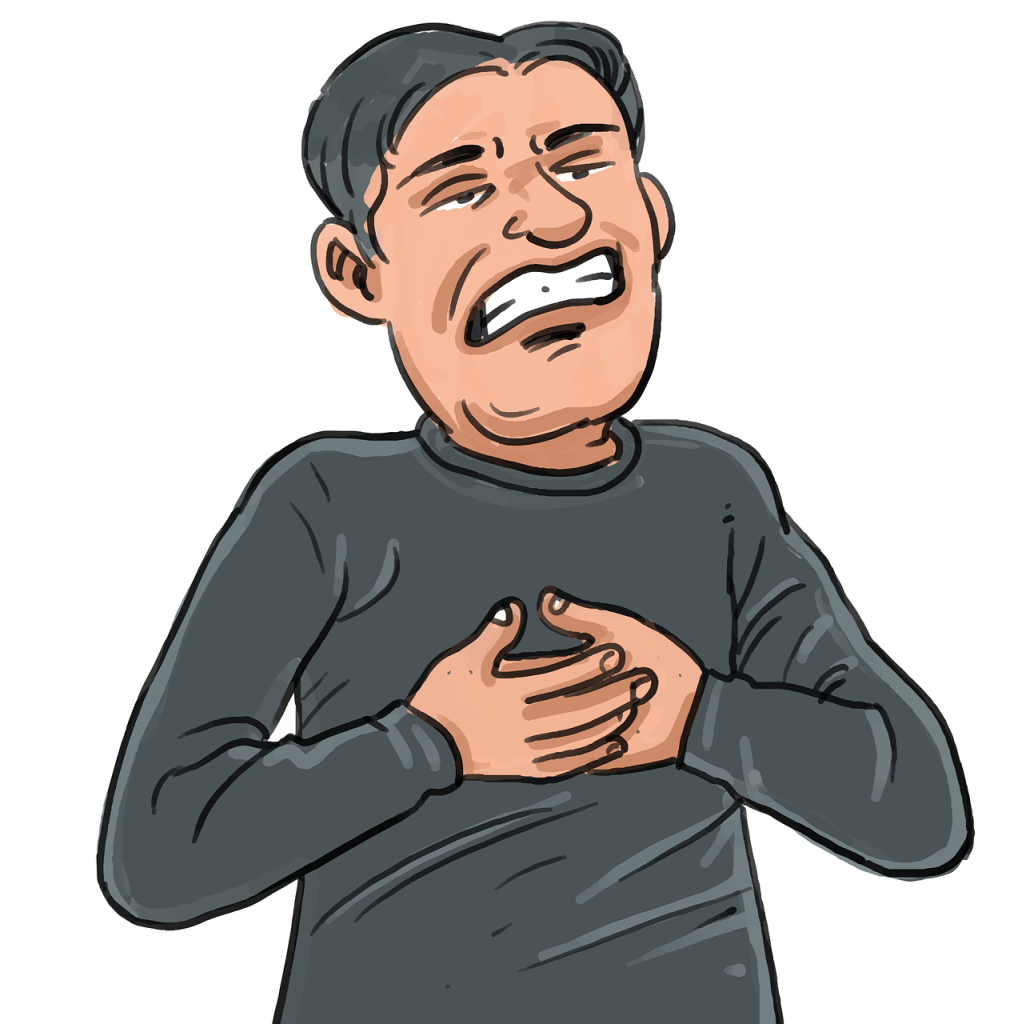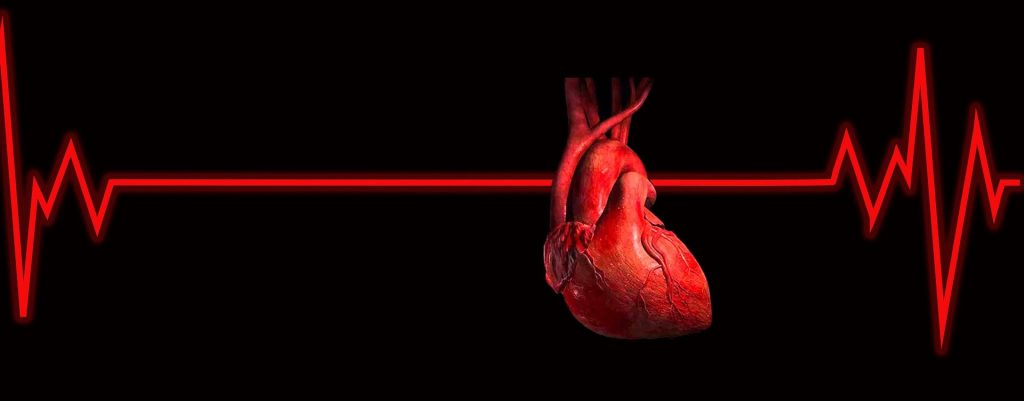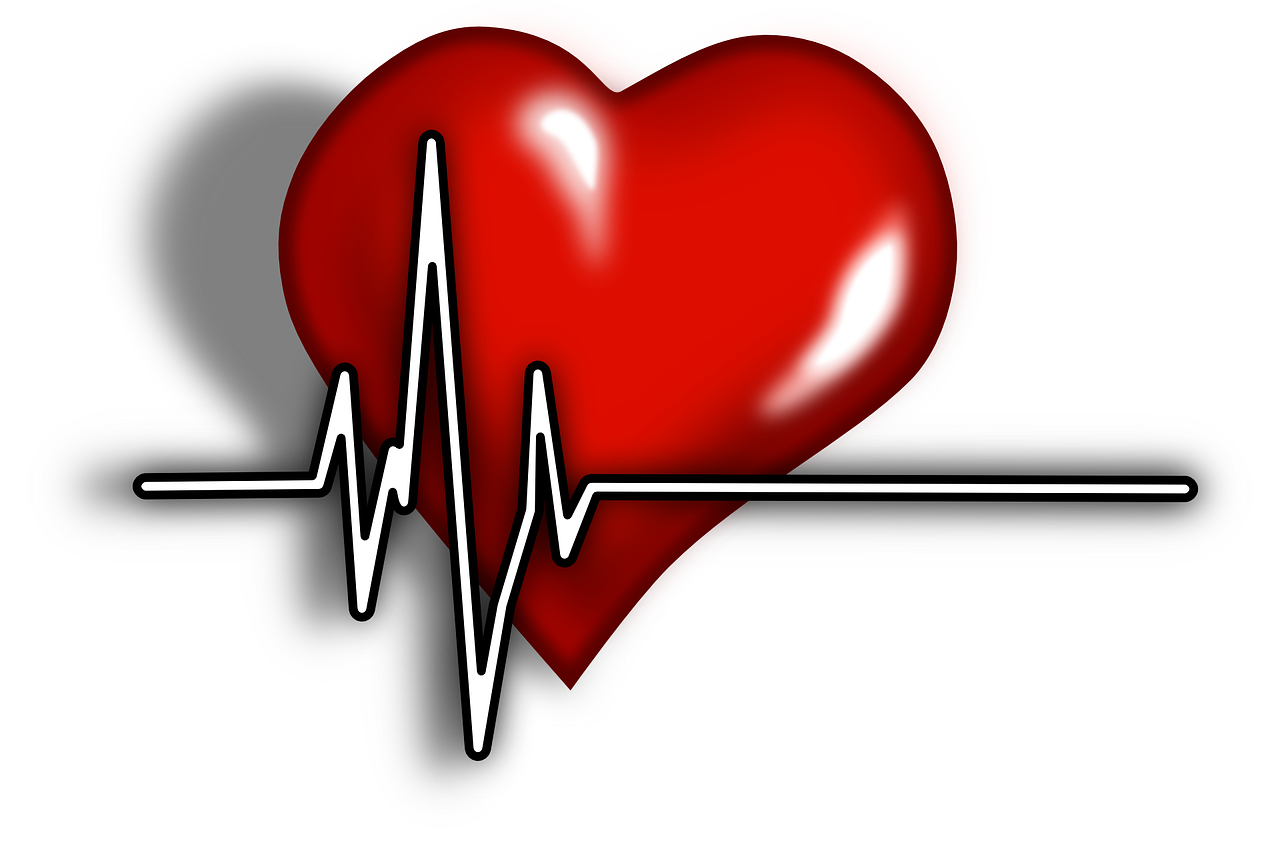There are several ways to determine the condition of your heart:
- A physical examination by a doctor or nurse can check your pulse, blood pressure, and listen to your heart for any unusual sounds.
- An electrocardiogram (ECG or EKG) can measure the electrical activity of your heart and detect any abnormalities.
- A echocardiogram (echo) uses ultrasound to create a picture of your heart and can show its size, shape, and how well it is pumping.
- A stress test can measure how well your heart functions during physical activity.
- Coronary Angiogram is used to detect the narrowed or blocked coronary artery.
It's always a good idea to consult with a healthcare professional if you have any concerns about your heart health. They can help determine the best course of action for you.

How can I check if my heart is OK at home?
While it's not possible to diagnose a specific heart condition at home, there are some things you can do to check your overall heart health:
- Check your pulse: You can check your pulse by placing your index and middle fingers on the inside of your wrist, on the thumb side. Count the number of beats you feel in 15 seconds and then multiply by four to get your heart rate. A normal heart rate is between 60 and 100 beats per minute.
- Measure your blood pressure: You can purchase a blood pressure monitor to use at home. A normal blood pressure reading is less than 120/80 mm Hg.
- Check for signs of heart disease: Look for symptoms such as chest pain, shortness of breath, or difficulty breathing.
- Keep track of your symptoms: Keep a journal of any symptoms you experience, such as chest pain or shortness of breath, and share it with your doctor.
It's important to note that if you experience any symptoms of a heart problem, you should seek medical attention immediately. A home monitoring can be a good way to track your health over time but it's not a substitute for professional medical advice. Your doctor will be able to provide a more accurate assessment of your heart health and recommend any necessary treatment.
How do I know if my heart is not OK?
There are several signs and symptoms that may indicate a problem with your heart:
- Chest pain or discomfort: This can feel like pressure, squeezing, fullness or pain in the center of the chest.
- Shortness of breath: This can be a feeling of not getting enough air or a feeling of suffocating.
- Fatigue: Feeling tired or weak, especially during physical activity.
- Dizziness or lightheadedness: This can be a sign of low blood pressure.
- Rapid or irregular heartbeat: This can be a sign of an arrhythmia.
- Swelling in the legs, ankles and feet: This can be a sign of heart failure.
- Coughing or wheezing: This can be a sign of fluid build-up in the lungs.
- Cold sweat, nausea or vomiting: These can also be symptoms of a heart attack.
It's important to note that not all of these symptoms are exclusive to heart problems and can be caused by other conditions, if you experience any of these symptoms or if you have a family history of heart disease, it's important to speak with a healthcare professional. They can help you determine the cause of your symptoms and provide appropriate treatment.
What are the first signs of a weak heart?

The signs and symptoms of a weak heart (heart failure) can be subtle and develop gradually, but some common early signs include:
- Shortness of breath: This can occur with physical activity or even at rest, and can be a sign that the heart is not able to pump blood effectively.
- Fatigue: Feeling tired or weak, especially during physical activity.
- Swelling in the legs, ankles and feet: This is caused by a build-up of fluid and can be a sign that the heart is not able to pump blood effectively.
- Rapid or irregular heartbeat: This can be a sign that the heart is not able to pump blood effectively.
- Coughing or wheezing: This can be a sign of fluid build-up in the lungs.
- Weight gain: This can be caused by fluid build-up in the body
- Reduced exercise tolerance: Difficulty to perform activities that were once easy to perform
It's important to note that not all of these symptoms are exclusive to heart failure and can be caused by other conditions, if you experience any of these symptoms or if you have a family history of heart disease, it's important to speak with a healthcare professional. They can help you determine the cause of your symptoms and provide appropriate treatment.
What does a weak heart feel like?
A weak heart, or heart failure, can cause a variety of symptoms, including:
- Shortness of breath: This can occur with physical activity or even at rest, and can be a sign that the heart is not able to pump blood effectively.
- Fatigue: Feeling tired or weak, especially during physical activity.
- Swelling in the legs, ankles and feet: This is caused by a build-up of fluid and can be a sign that the heart is not able to pump blood effectively.
- Rapid or irregular heartbeat: This can be a sign that the heart is not able to pump blood effectively.
- Chest discomfort: This can feel like pressure, squeezing, fullness or pain in the center of the chest.
- Coughing or wheezing: This can be a sign of fluid build-up in the lungs.
- Reduced exercise tolerance: Difficulty to perform activities that were once easy to perform
- Dizziness or lightheadedness: This can be caused by low blood pressure.
It's important to note that not all of these symptoms are exclusive to heart failure and can be caused by other conditions, if you experience any of these symptoms or if you have a family history of heart disease, it's important to speak with a healthcare professional. They can help you determine the cause of your symptoms and provide appropriate treatment.
What causes a weak heart?
A weak heart, or heart failure, can be caused by a variety of factors. Some common causes include:
- Coronary artery disease: This is caused by a build-up of plaque in the coronary arteries, which can reduce blood flow to the heart and eventually lead to heart failure.
- High blood pressure: Persistently high blood pressure can damage the heart and lead to heart failure.
- Heart valve disease: Damage or defects in the heart valves can make it difficult for the heart to pump blood effectively, leading to heart failure.
- Cardiomyopathy: This is a condition in which the heart muscle becomes enlarged, thickened, or stiff, making it difficult for the heart to pump blood effectively.
- Chronic obstructive pulmonary disease (COPD): This is a lung condition that can make it difficult to breathe and cause fluid build-up in the lungs, which can put extra strain on the heart.
- Diabetes: This can increase the risk of heart disease and heart failure.
- Alcohol or drug abuse: This can increase the risk of heart disease and heart failure.
- Genetics: Some people may have a genetic predisposition to heart failure.
It's also important to note that some medications, such as non-steroidal anti-inflammatory drugs (NSAIDs) and certain antidepressants, can also cause or worsen heart failure.
Can a heart repair itself?
The heart has limited ability to repair itself, but the extent of repair depends on the type and severity of the damage. Some types of heart damage can be reversed or improved with treatment, while others may not.
For example, if the damage is caused by a blockage in the coronary arteries, which supply blood to the heart muscle, a procedure such as angioplasty or bypass surgery can be used to restore blood flow to the heart.
If the damage is caused by a heart attack, the damaged heart muscle is replaced by scar tissue, which does not contract and therefore does not help in pumping the blood. In such cases, the remaining healthy heart muscle works harder to pump blood, which can lead to heart failure over time.
If the damage is caused by a heart condition such as cardiomyopathy, which affects the heart muscle, medications can be used to improve the function of the heart muscle and reduce the risk of heart failure.
In cases of severe heart damage, such as severe heart failure, a heart transplant may be necessary. While a heart transplant can be life-saving, it is a complex procedure and not everyone is eligible for it.
It's important to note that preventing heart damage by keeping your heart healthy through lifestyle changes and regular check-ups is a better option than trying to repair heart damage.
Reasons for getting heart attack at young age?
Heart attacks at a young age are relatively rare, but they do occur. Some possible reasons for a young person to have a heart attack include:
- Coronary artery disease: A buildup of plaque in the coronary arteries can occur at any age, but it is more common in older adults.
- Genetic factors: Some people may have a genetic predisposition to heart disease, which can increase the risk of a heart attack at a young age.
- High cholesterol: High levels of LDL (bad) cholesterol in the blood can increase the risk of heart disease and heart attacks.
- High blood pressure: High blood pressure can damage the heart and blood vessels, increasing the risk of a heart attack.
- Smoking: Smoking is a major risk factor for heart disease and heart attacks.
- Diabetes: Diabetes can increase the risk of heart disease and heart attacks.
- Obesity: Being overweight or obese can increase the risk of heart disease and heart attacks.
- Lack of physical activity: A sedentary lifestyle can increase the risk of heart disease and heart attacks.
- Stress: Chronic stress can contribute to high blood pressure and heart disease, increasing the risk of a heart attack.
- Substance abuse: Excessive alcohol consumption and drug abuse can increase the risk of heart disease and heart attacks.
It's important to note that heart attacks can happen to anyone, regardless of age or gender, and factors such as family history, diet, and lifestyle habits all play a role in the overall risk of developing heart disease. It is important for young people to be aware of their risk factors and to take steps to maintain a healthy heart.

What are the 3 types of heart failure?
Heart failure is a condition in which the heart is unable to pump enough blood to meet the body's needs. There are several different types of heart failure, which are classified based on the part of the heart that is affected and the direction of blood flow through the heart.
The three main types of heart failure are:
- Left-sided heart failure: Also called systolic heart failure, this type of heart failure occurs when the left ventricle, the main pumping chamber of the heart, becomes weak and unable to pump enough blood to the rest of the body.
- Right-sided heart failure: Also called diastolic heart failure, this type of heart failure occurs when the right ventricle, the chamber of the heart that pumps blood to the lungs, becomes weak and unable to pump blood efficiently.
- Systolic and diastolic heart failure: This type of heart failure is characterized by both left and right ventricular dysfunction, which means both the right and left ventricles are unable to pump blood efficiently.
In addition, heart failure can also be classified as Acute heart failure, chronic heart failure, and heart failure with preserved ejection fraction (HFpEF) and heart failure with reduced ejection fraction (HFrEF) It's important to note that heart failure is a complex condition and can have multiple underlying causes, such as high blood pressure, coronary artery disease, and diabetes. Treatment is tailored to the specific type of heart failure and the underlying causes.
What are the late signs of heart failure?
Heart failure is a progressive condition that can develop over time. The late signs of heart failure may include:
- Fatigue: People with heart failure may feel tired and have a decreased ability to perform activities that they previously enjoyed.
- Shortness of breath: As the heart struggles to pump enough blood, people with heart failure may experience shortness of breath, especially during physical activity or when lying down.
- Swelling: Heart failure can cause fluid to build up in the legs, ankles, and feet, causing them to swell.
- Rapid weight gain: People with heart failure may experience a rapid weight gain due to fluid retention.
- Cough: People with heart failure may experience a persistent cough or wheezing as fluid builds up in the lungs.
- Confusion: People with heart failure may experience confusion or difficulty concentrating as a result of decreased blood flow to the brain.
- Rapid heartbeat: People with heart failure may experience a rapid heartbeat, also known as tachycardia, as the heart tries to pump more blood.
- Dizziness or fainting: People with heart failure may experience dizziness or fainting due to decreased blood flow to the brain.
- Decreased urine output: People with heart failure may experience decreased urine output due to decreased blood flow to the kidneys.
It's important to note that these symptoms may not be specific to heart failure and can be caused by other conditions. If you are experiencing any of these symptoms, it's important to see a healthcare provider for an evaluation.
Where is heart pain located?
Heart pain, also known as angina, is typically felt in the chest and can radiate to other areas of the body. The most common location for heart pain is in the center of the chest, behind the breastbone. This pain is often described as a squeezing, pressure, or aching sensation.
The pain can also radiate to the:
- Left arm, shoulder, neck, jaw, or back
- Right arm
- Stomach or abdominal area
- Between the shoulder blades
It's important to note that heart pain can also be felt in other areas of the body, such as the jaw, arms, back, and stomach. This pain can be caused by a heart attack, which occurs when the blood flow to the heart is blocked. In some cases, heart pain may not be felt in the chest at all, this is called atypical chest pain.
If you experience chest pain or discomfort, it's important to seek medical attention right away as it could be a sign of a heart attack.
Difference between cardiac arrest and heart attack
Cardiac arrest and heart attack are related but different conditions.
A heart attack, also known as a myocardial infarction, occurs when the blood flow to the heart is blocked. This can happen when a buildup of plaque in the coronary arteries, called coronary artery disease, causes a blood clot that blocks the flow of oxygen-rich blood to the heart muscle. This lack of oxygen can damage or destroy a portion of the heart muscle.
Cardiac arrest, on the other hand, occurs when the heart suddenly stops beating. This can happen due to a malfunction in the electrical system of the heart, called an arrhythmia, which causes the heart to beat erratically or too fast. Cardiac arrest can also happen as a result of a heart attack, but it is not always the case.
In summary, a heart attack is a circulation problem, caused by blocked blood flow to the heart, whereas cardiac arrest is an electrical problem caused by abnormal heart rhythm.
Both heart attack and cardiac arrest are medical emergencies and require immediate treatment. Cardiac arrest is considered to be more severe than a heart attack, as it is the sudden cessation of cardiac function, which can lead to death within minutes if not treated immediately.
Symptoms of heart attack
The symptoms of a heart attack can vary from person to person, but some common signs include:
- Chest pain or discomfort: This can feel like a squeezing, fullness, or pain in the center or left side of the chest.
- Pain or discomfort in other areas of the upper body: This can include pain or discomfort in the arms, back, neck, jaw, or stomach.
- Shortness of breath: This can occur with or without chest discomfort.
- Cold sweat, nausea, or lightheadedness: These symptoms can also occur during a heart attack.
- Fatigue: People may experience excessive fatigue or weakness before or after a heart attack.
- Rapid or irregular heartbeat: This is known as palpitations, which is a sign of a heart attack.
It's important to note that not all heart attacks have these classic symptoms. Some people may have only mild pain or no pain at all. In these cases, other symptoms such as shortness of breath, nausea, or lightheadedness may be the only signs of a heart attack.
If you or someone you know is experiencing symptoms of a heart attack, call 911 or your emergency medical services immediately. Time is of the essence in the event of a heart attack, and prompt medical attention can save lives.
How can I make my heart strong?
There are several ways to help keep your heart strong and healthy, including:
- Eating a healthy diet: A diet that is low in saturated and trans fats, cholesterol, sodium, and added sugars can help reduce your risk of heart disease.
- Exercise: Regular physical activity can help improve cardiovascular fitness, lower blood pressure, and reduce the risk of heart disease.
- Not smoking or using tobacco: Smoking and using tobacco can increase your risk of heart disease, so quitting is an important step for heart health.
- Managing stress: Chronic stress can contribute to high blood pressure and heart disease. Finding healthy ways to manage stress, such as through meditation or yoga, can help reduce your risk.
- Maintaining a healthy weight: Being overweight or obese can increase your risk of heart disease. Losing weight through diet and exercise can help lower your risk.
- Getting enough sleep: Not getting enough sleep can increase your risk of heart disease, so it's important to aim for 7-8 hours of sleep per night.
- Keeping blood pressure and cholesterol levels under control: High blood pressure and cholesterol levels can increase your risk of heart disease. Your healthcare provider can help you manage these risk factors through lifestyle changes and medication if necessary.
- Avoiding alcohol and drugs: Excessive alcohol consumption and drug abuse can cause damage to the heart muscle and blood vessels.
- Regular check-ups: This is important to track and monitor your health status and make necessary adjustments.
It's important to note that people with certain medical conditions, such as heart disease or diabetes, may need to take additional steps to protect their heart health. Speak with your healthcare provider to learn more about what you can do to keep your heart strong.
Best Social Media Groups Every Marketer Should Join Now
Facebook Groups
- Software Industry
- Quotes And Notes
- Work from home jobs
- Indians in Australia
- Top Jobs Group
- NRI Telugu Group
- Health and Fitness
- BPO and Call Centers
- Sell and Buy Group
- Hyderabad Group
- Indians in America
- Indians in Canada
- International Trade
- Bangalore Group
- India Startups
- Travelers Group
- Online Shopping
- Made in India
- Games Group
- Film Industry
- Manufacturers
- Indians in Europe
- Technology Group
- Jesus World
- Motivation
- Wolfrax Jobs
- Entertainment Group
- Music Free Media
- Qezla Jobs
- Film Studios
- New Blends Media
- Fresher Job Network
- Shopping Network
- Remote Jobs Group
- Fitness And Health
Linkedin Groups
- Global Startups And Entrepreneurs
- International Trade Exports And Imports
- Remote Work From Home Jobs
- BPO Projects And Call Centers
- Healthy, Fitness, Diet
- India Job Network
- Software, Technology, Marketing
- Entrepreneurs Network
- USA and Canada Staffing
- Global Film Industry
- Australian Entrepreneurs
- Quotes, Notes and Motivation
- Biggest Job Network
- Wolfrax Jobs
- Qezla Jobs
- The Job Board
- Films Club
- Entertainment
- NGO Grouup
- Largest Job Network
